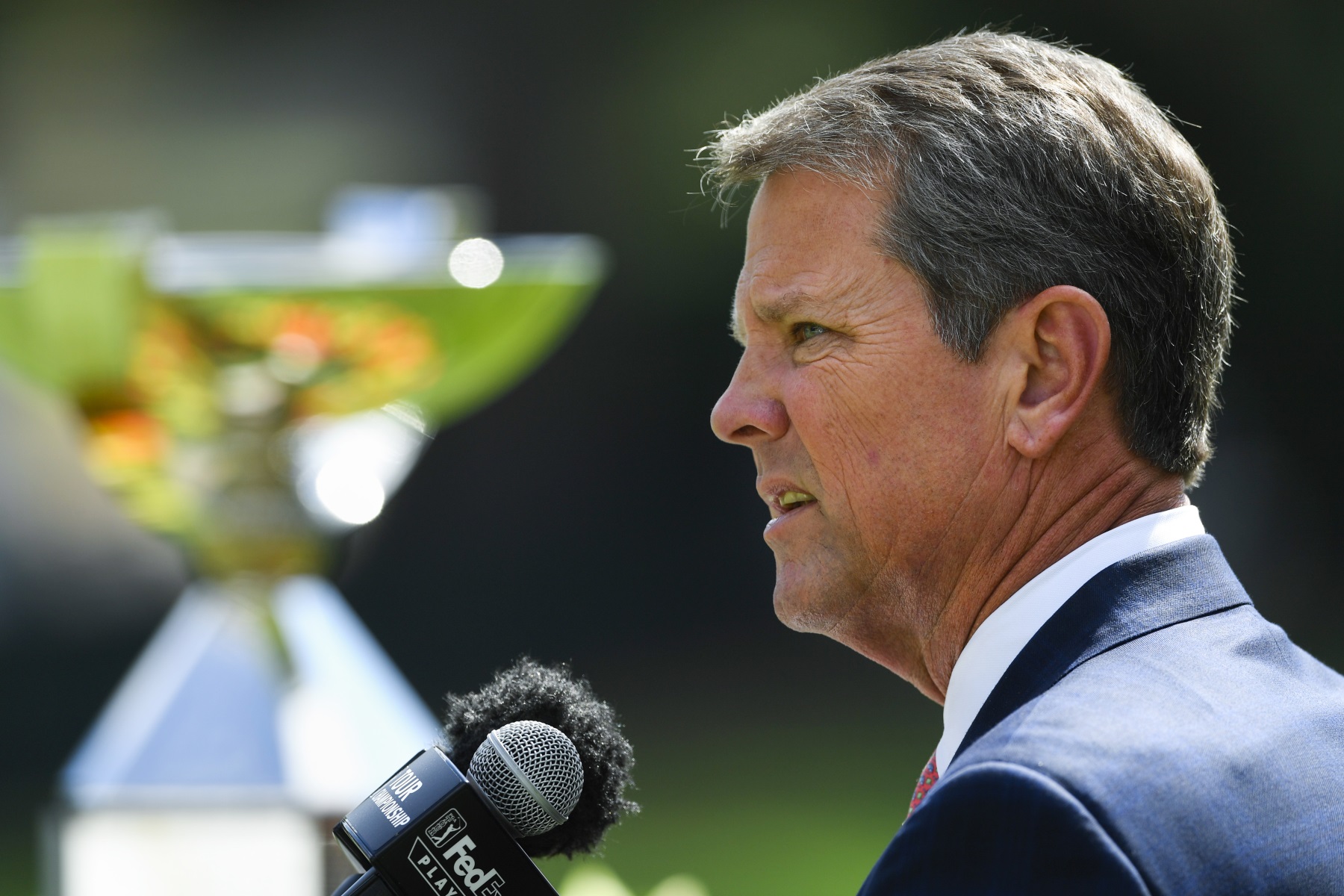Georgia Gov. Brian Kemp has released his long-awaited plan to expand access to health insurance to hundreds of thousands of some of the state’s poorest residents.
Kemp will ask federal officials for permission to expand the state’s Medicaid program to offer coverage to people who make between $0 and about $12,000 a year (0%-100% federal poverty level). His office estimates some 408,000 Georgians fall into that category.
But that coverage would not come without requirements.
First among them: at least 80 hours a month of employment, vocational training or volunteer work. Some enrollees would also need to pay a monthly premium.
“This is not a free handout. Hard-working Georgians who qualify will have skin in the game, paying a monthly premium determined by a sliding fee scale,” Kemp said Monday.
Applicants who meet the requirements would either be enrolled in traditional Medicaid or receive a subsidy to cover the costs of an employer-sponsored health care plan — whichever option costs the state less money.
Administration officials estimate some 50,000 Georgians currently meet the program requirements, just a portion of the hundreds of thousands of uninsured people in the state.
They see the Medicaid plan as a companion to Kemp’s effort to tweak the state’s individual insurance marketplace, which was announced last week. That would create a reinsurance program aimed at lowering health care costs for consumers and eventually break the state’s ties to Healthcare.gov.
Kemp called them “two Georgia-centric plans that address the challenges ahead, showcase our priorities, reflect our values and, most importantly, put patients first.”
The governor will make the request using a Medicaid demonstration waiver, which allows states to experiment with how they administer the state-federal insurance program.
If the plan is approved, it’s unclear how much the federal government will invest in it. Georgia will ask for the enhanced contribution given to states that expanded Medicaid, as prescribed by the Affordable Care Act.
But it’s unclear if Georgia will receive that rate because its plan is tailored to a smaller population. Earlier this year, Utah asked for the enhanced rate and was denied.
That match rate is important because it determines how much federal money will come in and how much Georgia will actually need to pay for the program, which is expected to cost $250 million over the course of five years.
Opponents say the plan will only cover a sliver of Georgia’s uninsured and could water down insurance plan requirements.
“This plan still leaves thousands of Georgians uninsured,” said Laura Colbert, with Georgians for a Healthy Future. “Our concern is that every Georgian has a pathway to coverage, and this plan does not do that.”
Colbert says work requirements are only a barrier, and there is no date showing that they help get people employment or better-paying jobs.
“The only impact of a work requirement is to disenroll people or keep them from enrolling in the first place,” she said.
The Kemp administration plans to hold a number of public comment meetings on their Medicaid and Obamacare waiver plans in the coming weeks and submit them both for federal approval by the end of 2020. Sign off from the feds is expected sometime next year.









